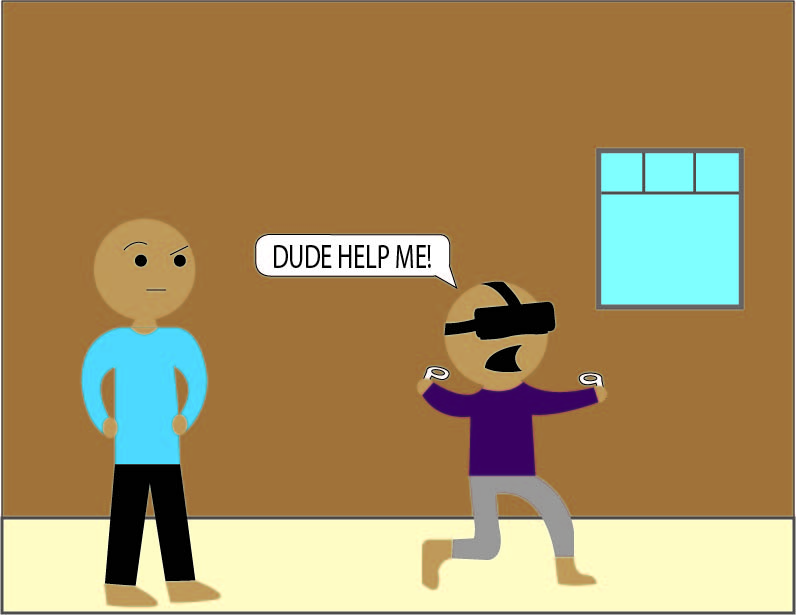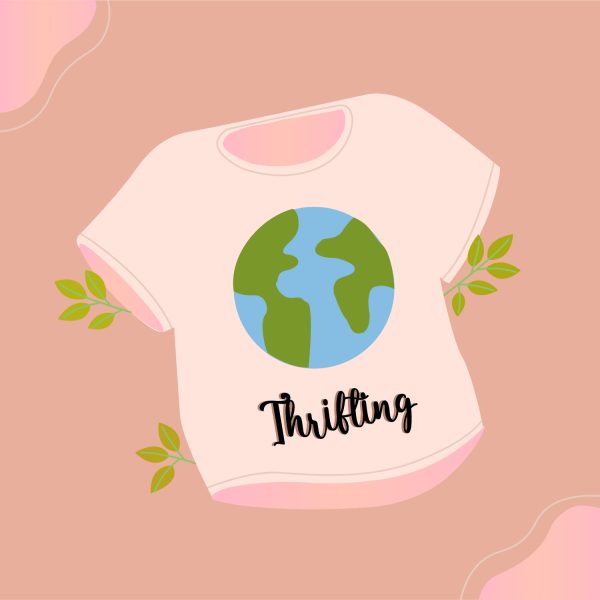The Metaverse: a Look at the Rise of Virtual Worlds
April 7, 2022
Currently, we live in the information age. Since the introduction of the world wide web, anybody can search up anything and communicate with people across the entire world at any moment. However, Facebook, which recently changed its name to “Meta,” wants to take it one step further, with the creation of the “Metaverse.” They claim it is the next step of the internet and with modern technologies like VR, Meta plans to take over the internet and make the metaverse a part of our daily lives. So, what is the Metaverse? What do people think of it, and how does it reflect on the future of the internet?
Starting off, think of the Metaverse as a kind of virtual cyberspace, a digital world. People can meet and build things, hang out, or do whatever. People can also buy merch for their avatars (something that Meta intends to heavily capitalize on). This virtual cyberspace will have its own digital economy, which investors and entrepreneurs see as an opportunity to expand the ecommerce industry. Overall, an example of the Metaverse could be Roblox. In Roblox, people collaborate to create games for people on the platform to play. Users can buy virtual clothes created by other users as well as purchase items in games and so on. There is an entire virtual economy and people can trade in their virtual currency for real money which gives a bit of incentive to put stuff on the platform. This is what Meta wants to do with the Metaverse; they want to expand this virtual cyberspace so that a lot of daily activities can be performed in the Metaverse, like shopping, working, and having fun. According to Bloomberg Buisnessweek, “For the first time, all of the technology giants are going to compete over the same turf.” This opens the possibility that other tech giants like Microsoft and Apple could possibly compete with Meta in this new business venture, possibly leading to interesting new products with a rivalry as intense as Apple vs Samsung phones. Whatever the case may be, the fact that tech giants are already competing over this new idea means that corporations see the Metaverse as the next big thing, and investment will swiftly follow.
To create the Metaverse, Meta plans to use lots of new technologies. Over the past decade they have poured massive amounts of investment into VR technology. In 2014, Facebook paid $2 billion for Oculus, and promptly rebranded the Oculus Quest into the Meta Quest. They have also changed the Oculus app to Meta. Additionally, they have used advancements in software and interconnectivity to polish the Metaverse experience. Overall, Meta hopes these investments will pay off, as it will make the Metaverse more immersive and easier to use, which will generate a lot of profit for them.
Mistrust from the common person could hurt Meta’s ambitions. According to NBC News, a recent poll shows that about 60% of people do not trust Meta (back then Facebook) with their personal information. Meta has faced heaps of criticism as people think that Facebook spreads radicalism and misinformation, wastes people’s time, and makes people generally more depressed and disconnected from others. According to CNBC, “Recent research has shown myriad negative effects of social media on the psyches of children and adolescents, from the prevalence of bullying and harassment to self-esteem and body image issues.” On top of that Facebook has had multiple cases of stealing user’s information in suspicious ways. This boiled over to the point that Meta had to pay 90 million dollars to settle a lawsuit over privacy concerns and shady data collection. People already do not trust Meta with their social lives, but now Meta wants to expand their influence to shopping, jobs, and daily activities, which many see as dangerous and possibly dystopian. With so much controversy about Meta, it will be hard for the Metaverse to take off. However, Meta hopes that the Metaverse ends up where it is so widespread that its integrated in our lives and seen as something a person must have.
After seeing what the metaverse is and gaining some background about it, what do people in our school think about it? All of the students interviewed had heard about the Metaverse but did not know a whole lot about it in detail. Freshman Jae Lee knows about the Metaverse, and when asked if he would change his opinion about the Metaverse if it was owned by another company like Apple or Microsoft instead of Meta, he says, “I wouldn’t, because it just wouldn’t matter. It’s just a change in name, in the end they’re all corporations.” When asked if his opinion would change if the government owned the Metaverse he states, “Yes, definitely, the government would use it (the Metaverse) to their complete advantage and probably misuse our data.” Junior Sienna Kinsley heard about the Metaverse on social media and some potential positives she sees with the Metaverse is “more business opportunities and connectivity for people around the world.” Negative wise, she states that “giving a shady company like Facebook (Meta) so much control in our day to day lives is dangerous. I’m pretty sure Facebook is going to steal and misuse our data.” Meta has been criticized many times for their platform being a place to spread hate and misinformation. Senior Mizuki Yamada thinks that the “internet is both informative and full of misinformation. The speed of information spread on the internet makes it both easier for good information to spread but lots of misinformation too.”
Despite all the information presented, and speculation among many, the question still remains, is the Metaverse the next big thing, and will it play a role in our day-to-day lives?





